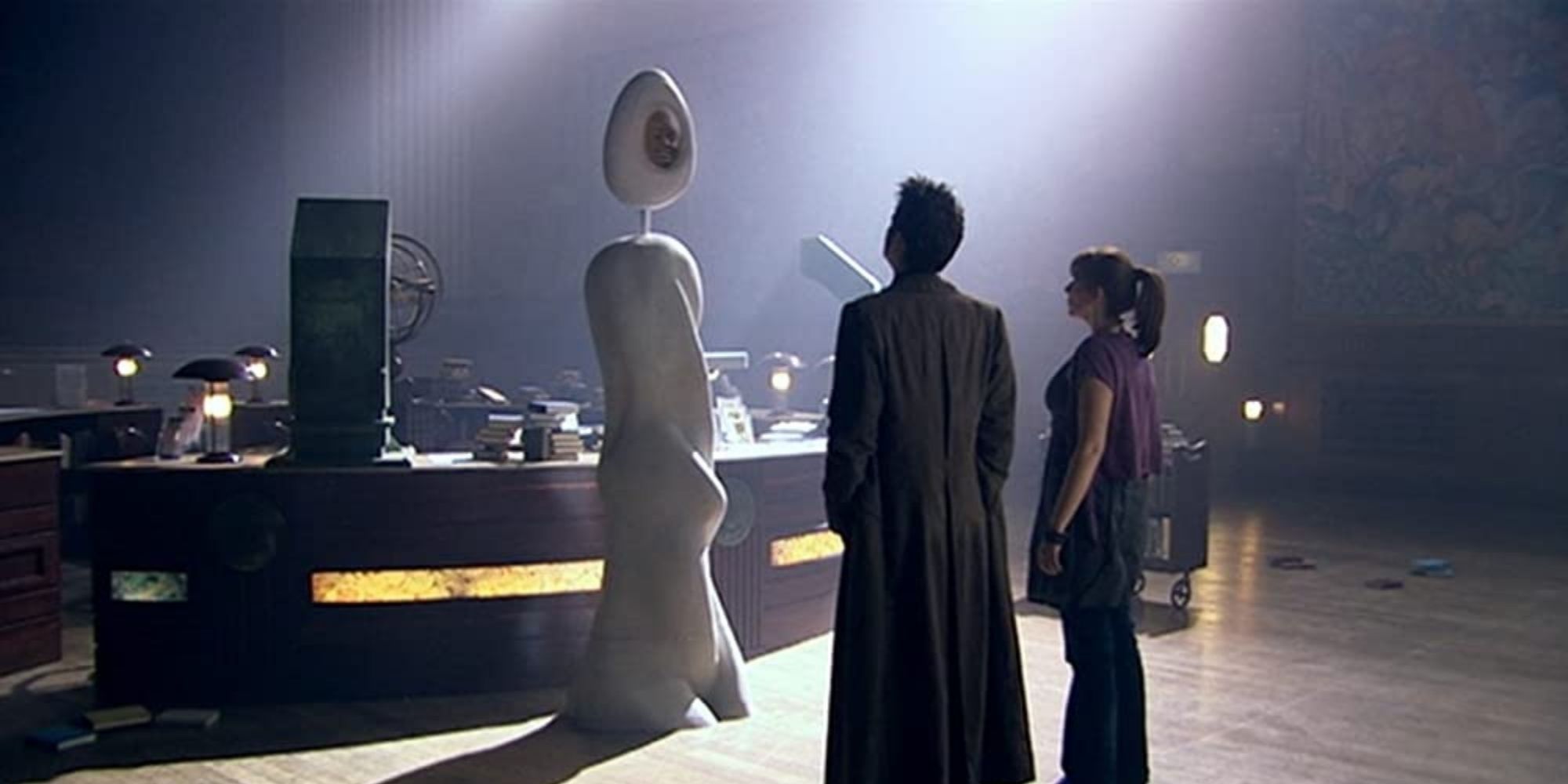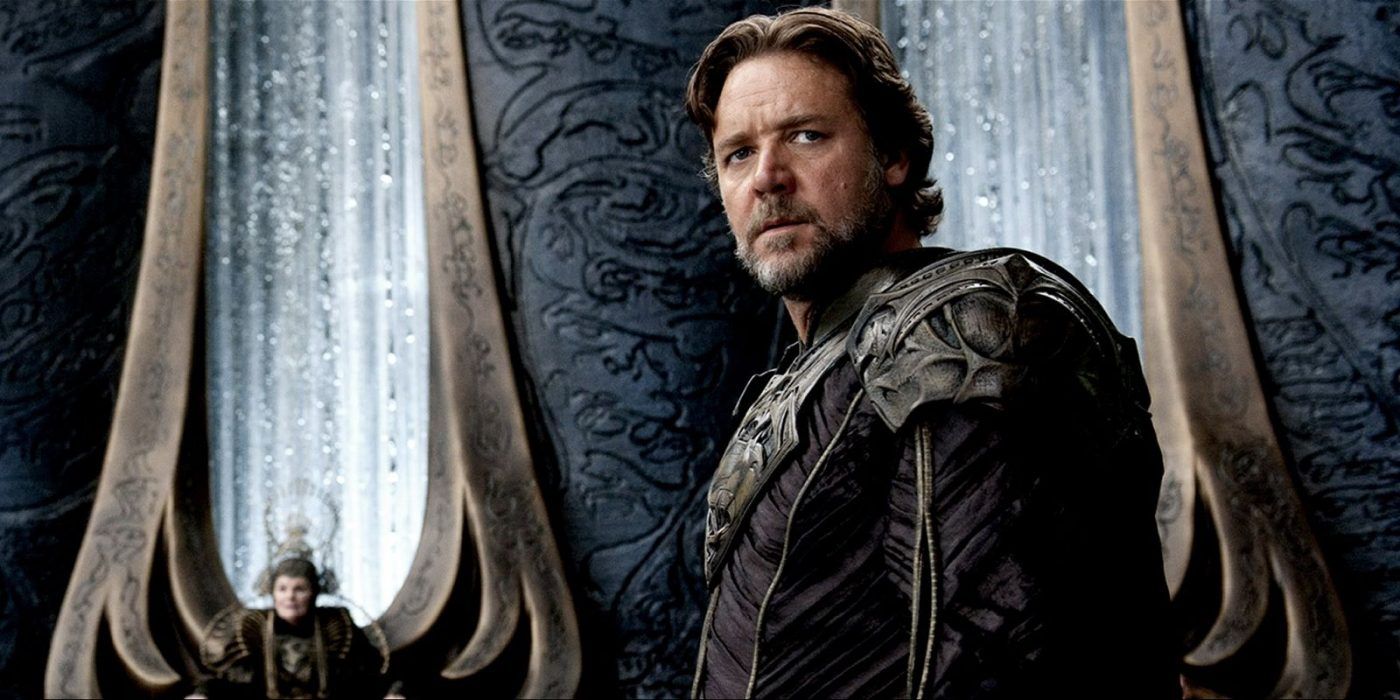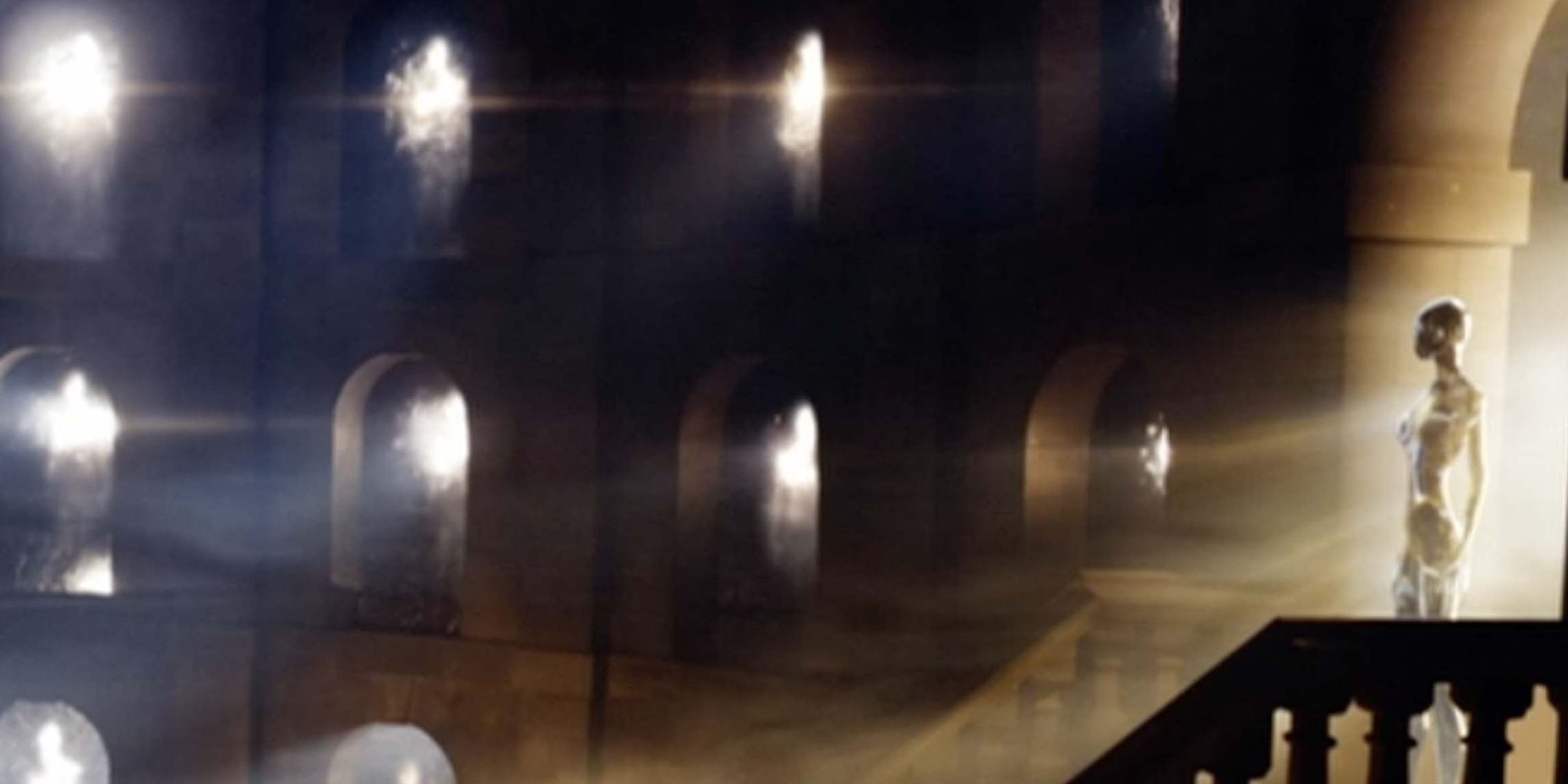Uploading the consciousness of a human being to a computer is a tricky proposition. Is it possible to give a machine the free will of a person's consciousness or is it just being programmed to mimic a person perfectly? But, what if all someone wanted was a digital copy that could keep their spirit alive?
A ton of speculative fiction has played with the idea of rendering death an impermanent inconvenience. The fantasy genre has magic spells and spiritual reincarnation, but sci-fi has to make do with highly advanced medicine and uploading brains to computers. Some solutions are less elegant than others.
The Virtual Ghost is an artificial intelligence, computer program, or hologram designed to mirror the behavior of someone who has died. Sometimes it's a fully conscious continuation of the dearly departed subjects, other times it's just a standard AI assistant with a personality. If the subject is still alive within the program, they may be less than thrilled about their permanent imprisonment within the machine. This essentially gives the writer the power to bring a character back from the dead in a helpful side role. They can act as a mentor to the other characters, run the machinery while the heroes do their thing, or just hang around as friendly faces in an otherwise cold world. This is similar, though distinctly different to something like an uploaded consciousness iteration of the afterlife. The virtual ghost might live on after death, but they aren't going to any great beyond, they're staying right where they were.
One of the most popular examples of this trope comes in stories about Superman. The original superhero who was sent from his home planet of Krypton and raised on Earth had parents that he cherished for his entire life. But, though Ma and Pa Kent are wholesome and admirable guardians, Kal-El still occasionally receives guidance from the father he never knew. In the Richard Donner Superman films, Clark's dad Jor-El and other elders of the late planet Krypton appear as holograms to guide him on his quests. This has become a recurring concept throughout the character's media appearances. Russel Crowe's Jor-El appears as a helpful hologram and acts like a video game's tutorial NPC in Zack Snyder's Man of Steel. The character appears entirely in AI hologram in the Arrowverse, portrayed by Angus Macfadyen. Though it was an invention of cinematic Superman stories, it also popped up in the comics. Jor-El is probably the first go-to example of the virtual ghost.
The earliest example of this trope is probably Cordwainer Smith's 1964 novella "The Dead Lady of Clown Town." The story is part of Smith's landmark Instrumentality of Mankind series, which imagines a utopian society that has led to human complacency and an underbelly of gruesome slavery. A caste of genetically enhanced sapient animals called underpeople is treated as disposable property, leading several to attempt an escape. With the aid of a therapist and a telepath, the underpeople attempt to raise a revolution to no avail. The eponymous Dead Lady is a virtual ghost called Lady Panc Ashash, a "personality recording" of a once-powerful member of the government. Ashash predicts the future and knows in advance that the revolution will fail, but that its martyred heroes will inspire future generations.
Doctor Who enjoys using this trope as well. The iconic season 4 episode "Silence in the Library" was the second of two excellent two-part contributions of Steven Moffat before he took over the show. It introduced the archeologists, led by River Song, who investigate the mysterious shutdown of the titular library. While there, they discover one of the most horrific aliens in the series' history, the Vashta Nerada. As the archeologists are slain one by one The Doctor discovers that their suits capture "data ghosts", a sort of neural snapshot that briefly retains their personality after death. This means that each victim becomes a virtual ghost as soon as they die, but that's not all. The entire library turns out to be operated by a locally maintained virtual ghost, who can permanently upload all of their ghosts to the system and keep them around. This idea has been used again multiple times, such as Testimony from the season 10 Christmas special.
The virtual ghost is a method of keeping characters alive and a way to make mundane AI more interesting. The concept could be the solution to a controversial death in a franchise, but it could just as easily be a way to spice up long space flights. The idea of consciousness forever suspended in machinery will always be rife with interesting questions, and only some works feel the need to get into them with this trope. The power of speculative fiction to skirt death can be used for all kinds of interesting new directions in storytelling.



